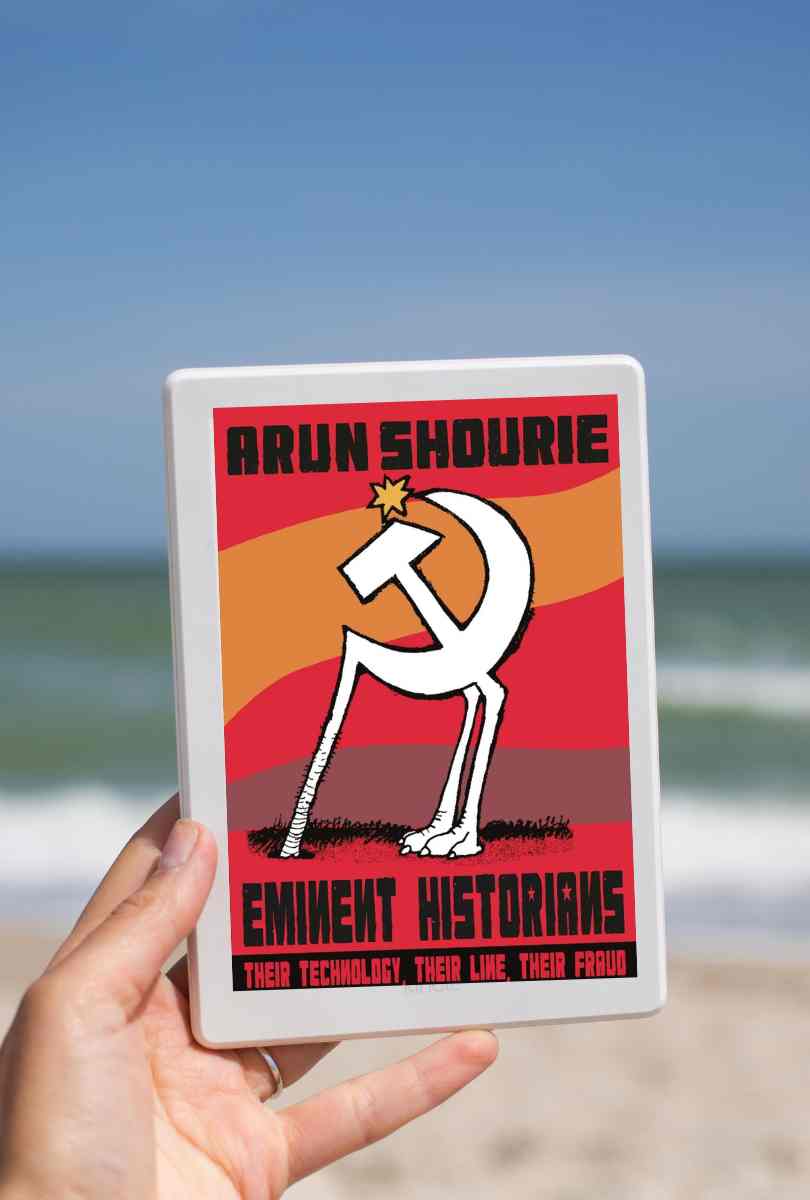CONCEPT: 4.5/5 RESEARCH: 4.5/5 RELEVANCE: 5/5 OVERALL: 4.5/5
Having frequently encountered the name Arun Shourie and having previously delved into his work, “Self-Deception: India’s China Policies,” my interest was piqued to explore a book shedding light on prominent historians in our country and their role in distorting Bharat’s true history. This book, “Eminent Historians” primarily scrutinizes left-leaning academicians (namely Romila Thapar, Irfan Habib, Satish Chandra, Bipan Chandra) who have, over time, elevated invaders and foreigners while disparaging anything remotely rooted in Indic culture.
Arun Shourie accomplishes this objective through meticulous research into the practices of numerous historians. His critical examination focuses notably on members of the Indian Council of Historical Research (ICHR), exposing how they obtained multiple financial advances for various historical research projects without delivering the corresponding work.
Shourie highlights a disturbing incident involving a council member who engaged in blatant plagiarism, submitting a deceased historian’s work as his own by manipulating records in an era when documentation processes were not as streamlined and were physically maintained.
Additionally, he underscores the extent to which our distressing history has been sanitized by conveniently ignoring numerous brutal occurrences such as massacres, plundering, rape, and notably, the systematic destruction of Hindu, Jain, and Buddhist temples by Muslim invaders. To substantiate his claims, he delves into contemporary official documents directing the revision of schoolbooks along these lines.
Moreover, he cites original memoirs and accounts from Muslim historians of bygone eras who unabashedly documented their pride in the devastation wrought upon the temples of non-believers.
Those who vaguely remember the NCERT textbooks and school history books we once studied would be astonished to discover the falsehoods and deliberate glossing over that we were subjected to in the guise of Indian history.
He also notes instances where these purported historians have frequently fabricated history according to their personal inclinations, lacking substantial documents or facts to substantiate their assertions.
Shourie examines numerous cases in which a historian postulates their version of the truth without any primary sources. Subsequently, the next historian adopts the initial theory as a reference, initiating a chain where each successive historian quotes the others, ultimately solidifying a speculative theory as an established fact.
In “Eminent Historians”, Shourie proceeds to emphasize that these historians are primarily affiliated with communism, actively promoting their personal agendas. They achieve this by exclusively endorsing individuals who share similar ideologies and by gaining complete control over various institutions. While they extol communism on one front, they conveniently overlook the sad reality of the communist betrayal during the Quit India Movement. Additionally, they systematically erase the havoc wrought by communists in countries such as China, Russia, and Cambodia.
Consider the prolonged impact of being exposed to the narratives of these historians over the decades—a continuous process of mental conditioning. Envision the twisted sense of national shame ingrained in us, as we were taught predominantly about the negative episodes or instances of defeat in our history and civilization. Think about the substantial difference this has made to our self-perception and national pride. Picture a scenario where we only learn about the history of a select few dynasties, arbitrarily labelling it as the entirety of Indian history.
Think about the erasure of numerous illustrious kings and queens, along with their significant contributions to our nation and culture. It’s regrettable that this fact went unnoticed for so long, and we, as Indians, still find ourselves immersed in such distorted versions of our history today.
I earnestly encourage every individual with even a slight interest in Indian history to grab a copy of this book and unravel the distortions imposed upon us. However, it’s crucial to acknowledge that this is merely a small step, just the tip of the iceberg.
As a beginning, let’s promote the exploration of the authentic history of India.
Eager to delve into “Eminent Historians”? Secure your copy now!
